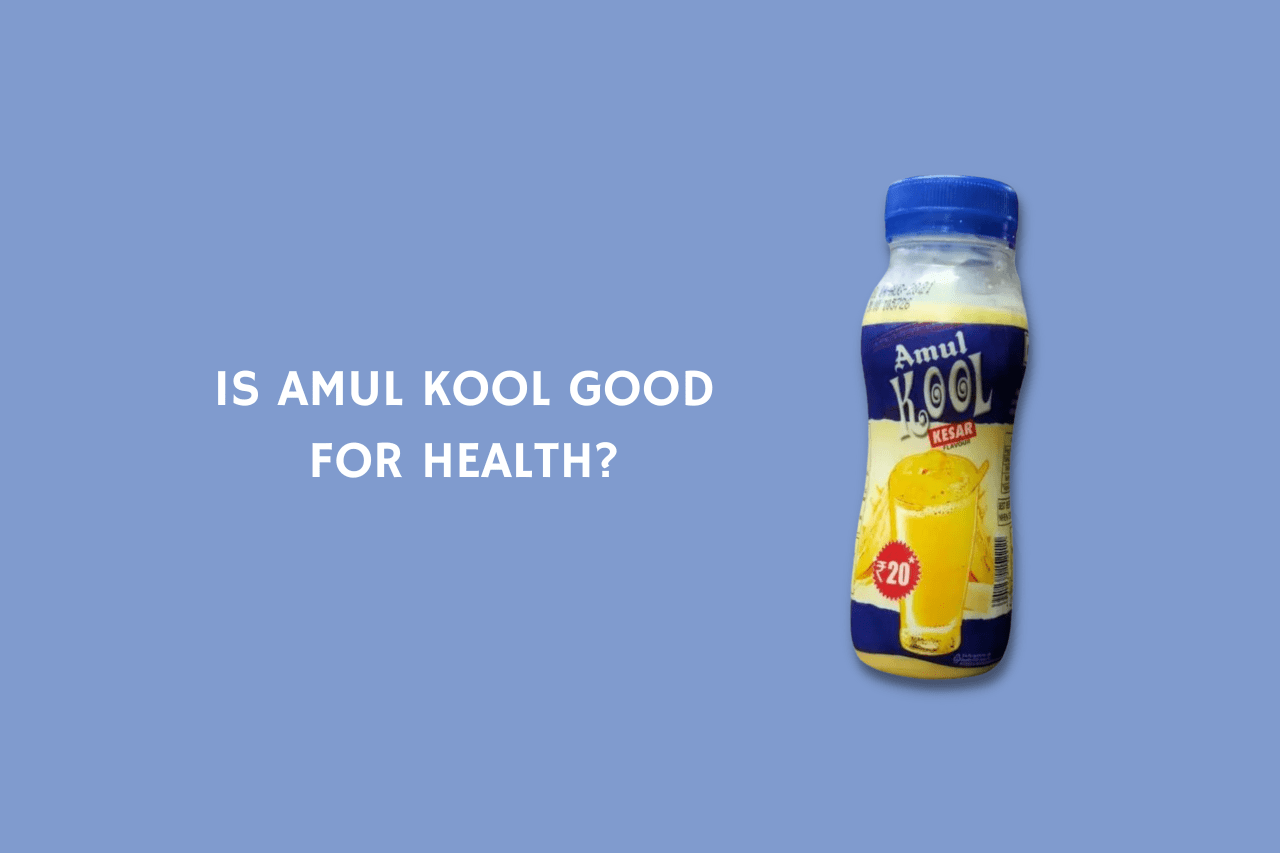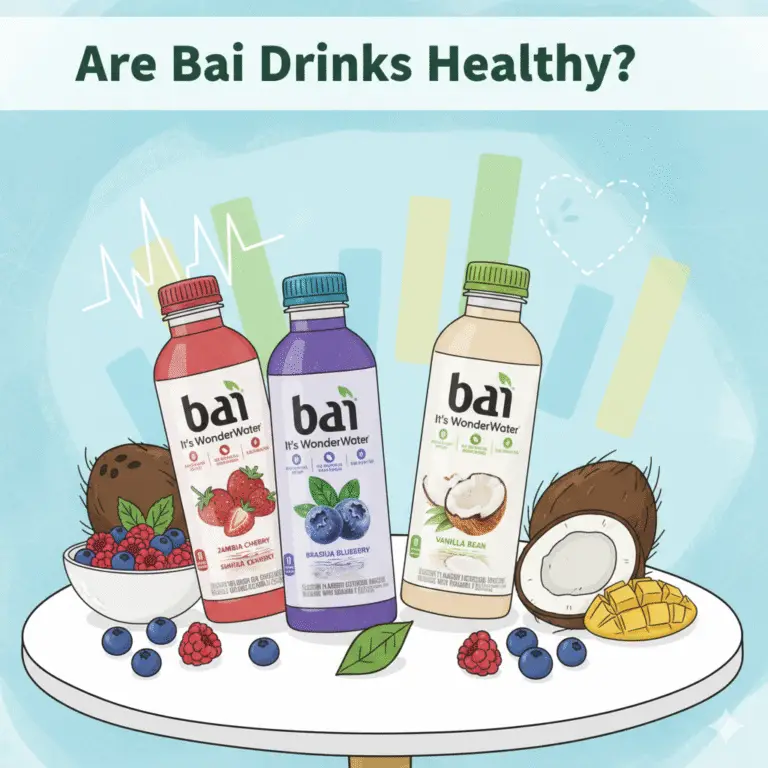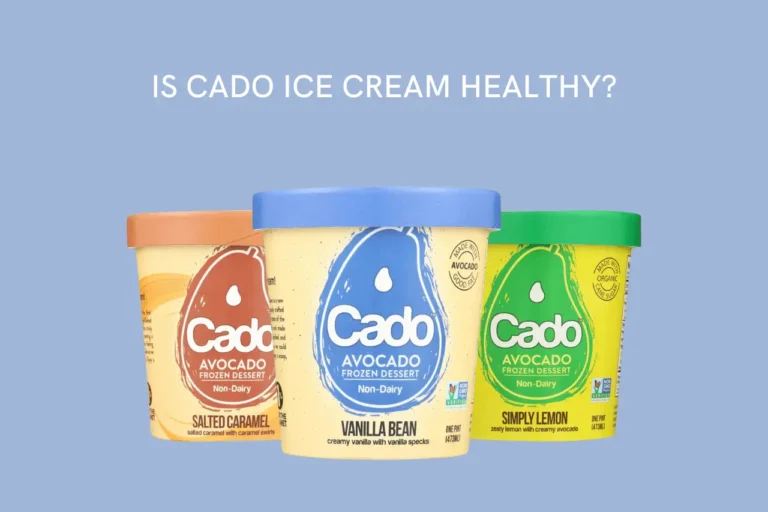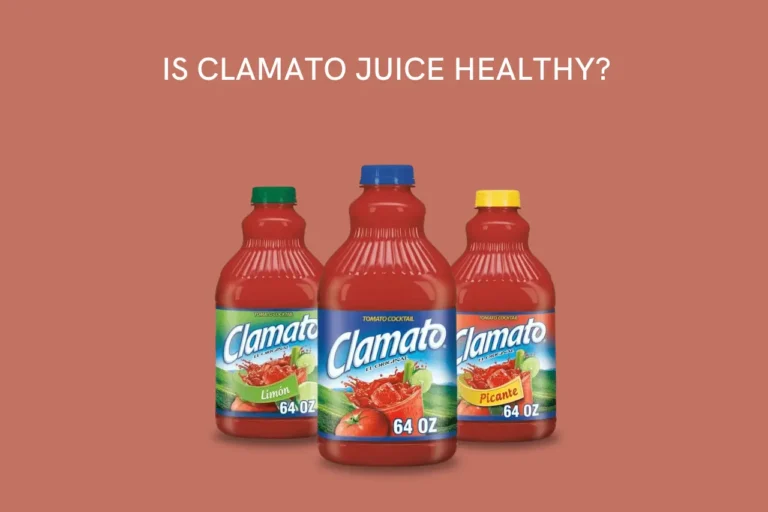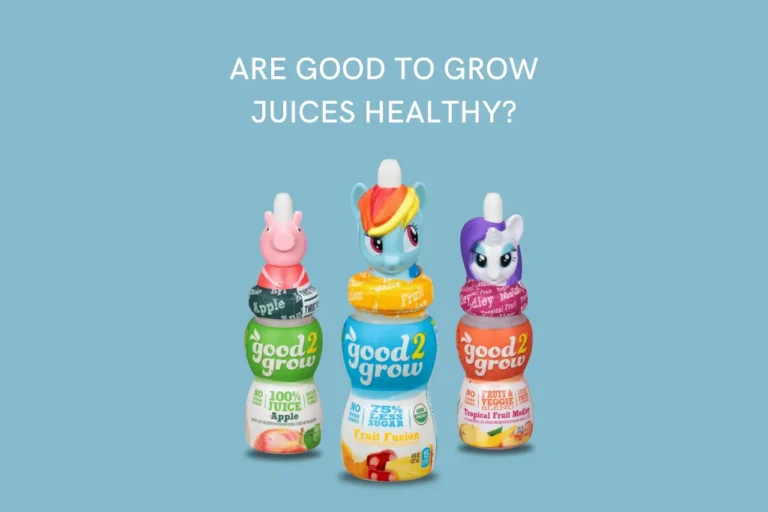If you’re like me, you’ve probably been bombarded with ads for Amul Kool.
Amul Kool is a flavored milk drink by Amul that comes in various flavors, including chocolate, strawberry, badam, Kesar, vanilla and more.
It is popular drink among people that is not only consumed during summer but also in winter due to its delicious taste.
However, have you ever wondered if Amul kool is good for your health?
Shot answer: Amul kool is high in sugar and comes with many artificial additives including flavors and colors that can bad for your health.
For a more detailed overview of Amul kool, read on to the end of this post.
Also read: Is Amul Lassi Good For Health? Here’s The Truth
Nutrition value of Amul kool
When it comes to nutrition, all the flavors of Amul kool have almost the same nutritional value.
A 100ml serving of Amul kool (Kesar flavor) contains:
- Calories: 89
- Carbs: 12g
- Sugar: 8g
- Fat: 3.1g
- Protein:3.2g
- Cholesterol: 8.3mg
- Sodium: 50mg
- Calcium:120mg
Ingredients in Amul kool
The key ingredients that are used among all the flavors of Amul kool include:
- Toned milk
- Milk solids
- Sugar
- Stabilizers
- Artificial food colors & flavors
6 Reasons why Amul kool is not good for health
1. High in sugar
Every 200ml pack of Amul kool comes with 16g of added sugar.
While this might not seem like too much, most people already eat plenty of sugar from other food sources. As a result, it tends to exceed the daily recommended limit.
According to American Heart Association, adults shouldn’t consume more than 30g of sugar; for children, it is 24g.
But when you drink a single 200ml pack of Amul kool, you exhaust 53% of your daily sugar limit as an adult and 66% as a child.
Including Amul kool in your diet, especially on a regular basis, adds too much sugar to your diet, increasing the risk of many health problems such as weight gain, fatty liver, obesity, type-2 diabetes, dental issues, heart disease, depression, bone problems and much more.
2. Low in nutrients
Despite containing milk and milk solids, Amul kool is low in nutrients.
Yes, it’s a slightly good source of protein, containing about 6g per 200ml pack. But nobody drinks packaged drinks for protein. There are plenty of other good protein sources, such as soya chunks and eggs.
It also has good calcium levels, i.e. 240mg per 200ml pack, which is about 24% of the daily requirement. However, sugar plays a negative role here.
As per research, people who consume too much added sugar are more vulnerable to the detrimental effect on bone mass[1].
Additionally, sugar-packed foods strip the body of nutrients like calcium, potassium and vitamin D.
This means that even if there are good calcium levels in Amool kool, it is not of any use, as sugar stops the body from absorbing that calcium properly.
3. Loaded with Artificial colors
Being loaded with artificial colors is one of the main reasons Amul kool is bad for your health. These colors include:
- Sunset yellow FCF (110)
- Azurobine (122)
- Tartrazine (102)
- Caramel color (150d)
- Erythrosine (127)
Many of you might not know, but intake of artificial food colors can result in many serious health problems.
For example, color 110, or sunset yellow FCF, is a petroleum-derived color that has been linked to issues like nausea, indigestion, vomiting, and allergic reactions[2].
In addition, tartrazine has been found to cause hyperactivity, migraine and allergic reaction, especially in those who are asthmatics.
In fact, Amul itself has labelled that these colors (110,122,102) can have a negative effect on the activity and concentration of children.
But many of us have a habit of not reading labels. All we care about is the taste.
4. Not the ideal drink for kids
Drinks like Amool kool are mostly consumed by kids.
And while these drinks satisfy the taste buds, they can cost child health.
Being loaded with sugar and artificial colors, drinking these drinks increases the risk of health issues such as tooth decay, weight gain, sugar addiction and pre-diabetes in children.
5. Use of artificial flavors
Many people may assume that Amul kool uses actual Kesar, badam or elaichi among it’s drinks, but unfortunately, that’s not the case.
Amul kool uses a different types of artificial flavors among its drinks to provide an authentic taste.
For example, Amul kool Kesar does not use actual Kesar but a lab-made flavor that tastes like Kesar. This is the same with other flavors too.
While there is no strong evidence that artificial flavors are bad for health, they can cause health issues in people who are sensitive to them.
In children, artificial flavors may cause hyperactivity or behavioural issues[3][4].
6. Skin problems
The combination of dairy with a high amount of sugar can increase the risk of skin problems for you.
This is because foods with high sugar generally have a high glycemic load. Studies have shown that eating too many foods with high glycemic load can cause skin problems such as decreased skin elasticity, acne, rashes, and wrinkles[5].
Final words
Amul Kool is shown in the ads as it is the only healthy drink your need to enjoy your life, but in reality, it is not good for your health.
If you consume in excess, the high sugar content in it will take little time to give extra weight to your feet.
“Keep your body moving” is what the new ad from Amul kool says, and they are right. If you want to offset the sugar content that comes with Amul kool, you really need to keep moving.
In addition, it comes with many artificial additives, including flavors and colors, which can result in unexpected health issues in the future.
Furthermore, If you have diabetes, migraine, asthma, allergies or any chronic disease, it is best to avoid Amul kool.
Found this information helpful? Share it.
Here are a few other posts that might be helpful for you.
